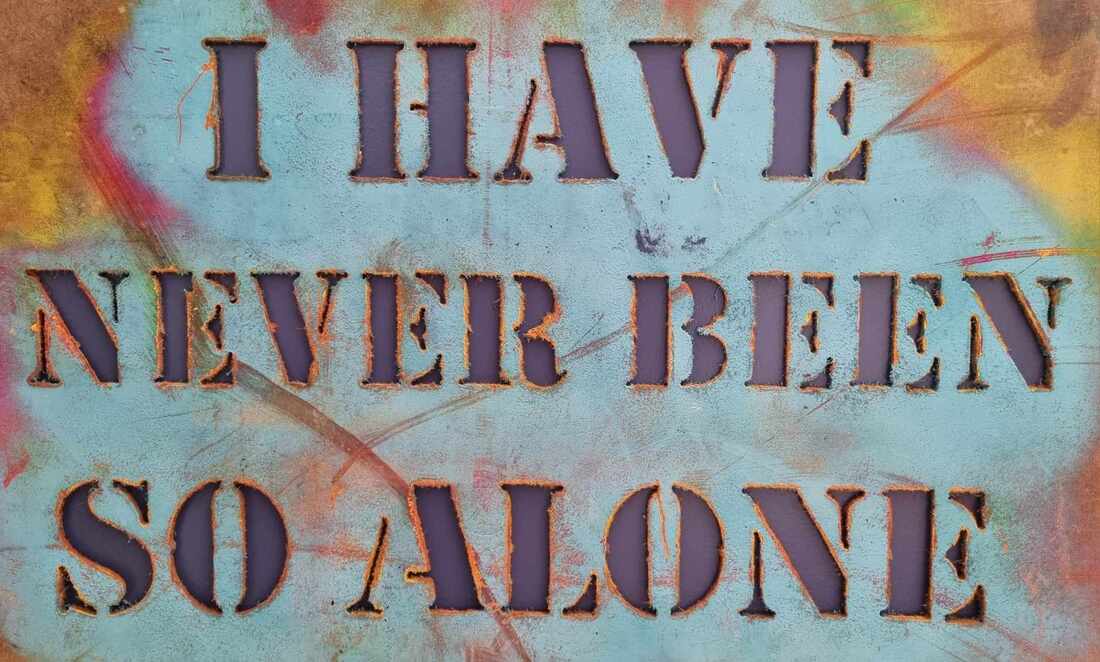|
I have always been a very tactile person, and when Tim died I missed his touch so much. I used to get up before he did and start work, and then come back to bed for a cup of tea and a cuddle. There were the little touches too – walking hand in hand. My hand on his knee when we sat together in the pub. A hug and a kiss before I went out. After he died and the paramedics left, I lay on the floor with him, my head tucked into his neck.
My friends and family are good at hugs, and that helped. As did haircuts and massages (the local college ran a beauty course and the trainees did brilliant full body, deep muscle massages) but it wasn’t the same. And then we went into lockdown, and I understood what skin hunger (also known as touch starvation or touch deprivation) really meant. After lockdown, when I went back to my Pilates class, my tutor put her hand on me to adjust my position and I almost cried. Touch is really important – newborn babies are comforted by skin-to-skin contact with their parents or carers, and kangaroo care is especially important for low-birthweight or premature babies. There is science behind skin hunger – touch triggers the release of the feel-good hormone oxytocin, and stimulates pressure sensors that send signals to the vagus nerve, calming the nervous system. Stress triggered by lack of touch releases cortisol which can increase your heart rate and blood pressure. What can help (and I know it's not the same)
0 Comments
"I have never been so alone" The Derby Witness 2020 Many of us have been lonely at one time or another, and it is a deep dark feeling. I didn't really understand the depth of it until I was a childfree widow during the COVID-19 lockdown in spring 2020, when I couldn't visit anyone, touch anyone, or chat with anyone other than from a distance. The aloneness and the loneliness that came with it made me hurt physically.
When we are widowed, loneliness can be overwhelming and all-encompassing, and made worse by our grief. It can feel physical. As a someone said on Twitter – yearning is a physical pain, an ache that never ceases. It’s also a loneliness that isn’t linked to being alone – we can be lonely in a crowd. Health impacts of loneliness Being lonely can affect health – social isolation and loneliness have been linked with a number of forms of physical and mental illness, including high blood pressure, heart disease, stroke, type 2 diabetes, a weakened immune system, worsening Parkinson’s disease symptoms, anxiety, depression, suicidal ideation, stress, cognitive decline, dementia, and even death. There’s a number of possible reasons for this – loneliness and grief are both linked with behaviour that can affect our health, including not eating or sleeping properly, not exercising, and drinking or smoking more than is healthy. People who are grieving and lonely may not look after their health. And loneliness itself can affect health, with reduced immunity, increased inflammation and increased pain. What to do? Woman’s hour on Radio 4 had a special on Loneliness – the last taboo?, and it’s worth listening to. There are groups and organisations that can help with information on loneliness and how to cope:
If you want to find people locally and nationally to connect with, there are organisations and websites that link people up: |
AuthorI was widowed at 50 when Tim, who I expected would be my happy-ever-after following a marriage break-up, died suddenly from heart failure linked to his type 2 diabetes. Though we'd known each other since our early 20s, we'd been married less than ten years. Archives
July 2024
Categories
All
|




 RSS Feed
RSS Feed